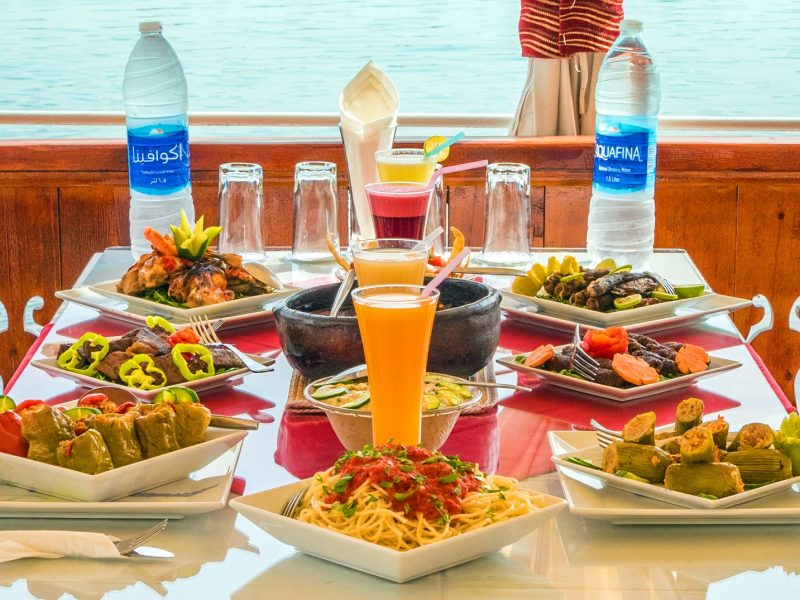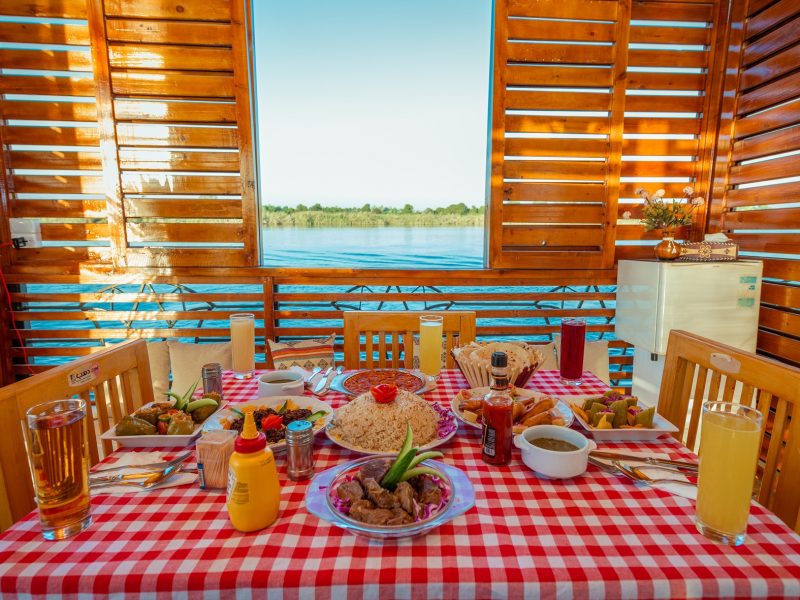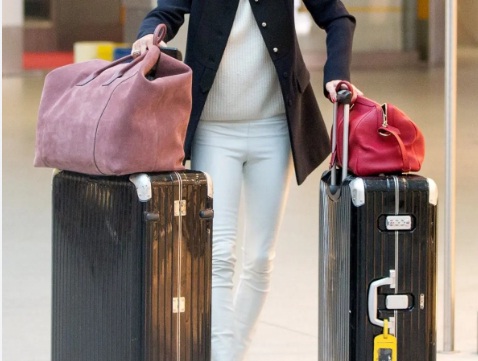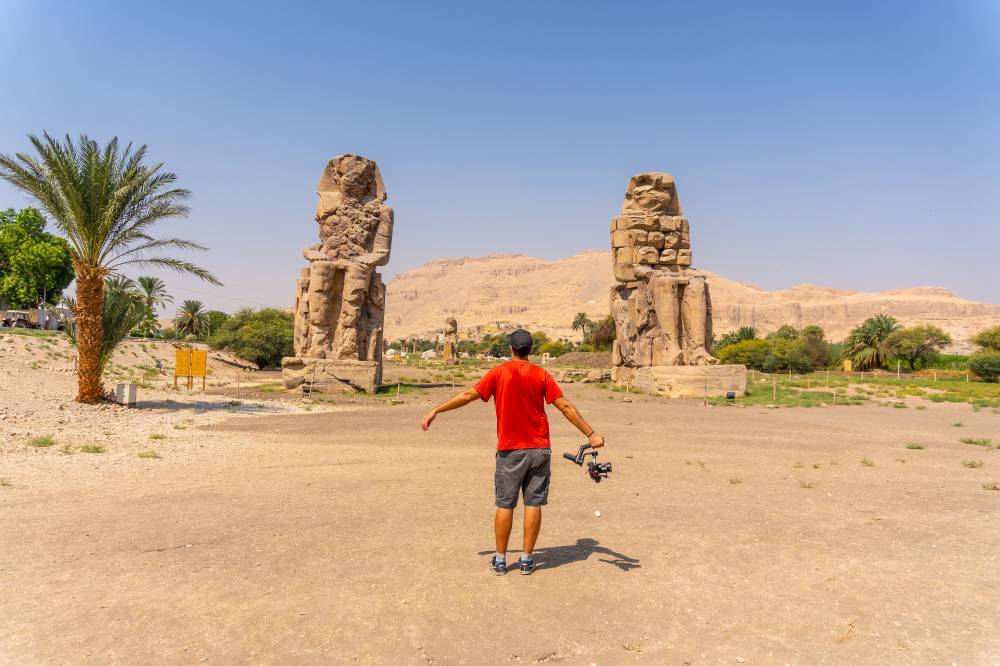| What to pack? | What to wear?
What to Eat? |
When to go? |
When to go to Egypt?
This is usually the third question you ask yourself after deciding where to go, then, do I need a Visa to Egypt? When to go to Egypt?
A real traveller, understands that there are some factors should be put into consideration, after safety, comes the climatic conditions of the country he wishes to go. Egypt is not an exception, despite the fact that you can visit Egypt all year round, as all Egypt’s travel destinations and tourism activities are well available but preferences and priorities come according to climatic conditions.
Weather-wise, June to August is unbearable almost anywhere south of Cairo, especially around Luxor and Aswan, where daytime temperatures soar up to 40°C. Summer in Cairo is almost as hot, likewise is Safari tours, particularly in The Western Desert. On the other hand, a scorching sun might be exactly what’s wanted for a week or two of slow roasting on the beaches of southern Sinai, The Alexandrian coast or the Red Sea – just be prepared to fight for hotel rooms with locals on their summer holidays and Gulf Arabs escaping the even greater heat in their home countries.
For that, visiting somewhere such as Cairo/Luxor/or Aswan winter is easily the most comfortable time. The happiest compromise for an all-Egypt trip is to visit in spring (March to May) or autumn (September to November).Hence, the best time to visit Egypt depends on where you want to go. Generally speaking,
Please note that:
Most of Egypt’s religious and state holidays last only one, two or three days at most, and should not seriously disrupt any travel plans.
Buses/Trains, however, may be fully booked (especially two days before the holiday and another two after the holiday) around the two Eids (Islamic feasts) and on Sham EL Nessim, The Beginning and last days (especially last day) of the holy month of Ramadan, can be seriously disruptive to your best-laid travel plans.
Egypt is still surprisingly good for budget travelers, if you do your homework! The best time to go, if you are on a budget, is right in the middle of summer (July–September) this is the tourism low season. Sites are less crowded, hotels less full, and there is more room for travelers to haggle on prices. The downside is that it gets seriously hot, especially the further South you go.
Travelling during the Holy Month of Ramadan
Apart from the weather to consider when to go to Egypt, you may also consider the holy month of Ramadan. If you travel during this holy month, you’ll really experience the some Islamic tradition first-hand. During the 29/or 30 days of the month (lunar calendar), most people (Muslims) are fasting through the day / that means you consider and expect some interruptions to your travel schedule, as many archaeological sites open slightly late than usual and close earlier than usual too. Most of Restaurants (out of tourists and international fast food chains/ restaurants) don’t open during day time, but after, even some closes the whole month. However life has completely different rhythm with major cities, especially Cairo come alive at night until the morning after.
May be the opportunity to witness Ramadan in Egypt, is to see how people celebrate the month, how by sunset all the streets look as if it is a ghost town, how people gather together for breaking their fast in Public Dining (some for free). And at night how tens of thousands of people flock to mosques to say the prayers. It’s a different world or maybe experience you can have only in Egypt.
What to wear in Egypt and what not?
When you plan a trip to any country? Another essential question comes into mind, (if you travel to Europe in winter, sure you know what to wear) what to wear during my trip? For most people, when they decide a trip to Egypt they think primarily of hot climate and a conservative Muslim culture which pose a problem not that easy to solve. , for example, is it OK to wear Shorts? And what to wear in Egypt when entering a mosque/or a church?
Here is a piece of advice, it may help….
Concerning Egypt the most important, is to know about weather.
Egypt is hot throughout the year. It is basically one big desert (96% of the total land area) , it almost never rains (just few weeks a year with some heavy showers), and the only thing you possibly have to worry about is a sandstorm (usually occurs mid-March/April). The sun will be extremely intense no matter the season you travel, but in summer time is in its full capacity. But, The good news: It’s a dry kind of heat with extremely low humidity so it won’t feel as hot as it actually is. Still, places like Sakkara/Giza Pyramids/the famous Valley of the Kings will be a true furnace in summer (especially June to August).
If you are visiting Egypt in winter (November, especially December & January, until March), you will be able to enjoy cooler temperatures around 10 to 25 ° Celsius / 50 to 77 ° Fahrenheit. The sky in these months is a bit overcast, that for the above mentioned sites, it might be the more enjoyable time of the year to travel.
Shorts again and again!
Can I wear Shorts, and what about women dress in Egypt?
You still asking, can I wear shorts? And what about women dress, are sleevless tops OK?
Simply, you must know that there’s no dress code in Egypt for tourists.
But, note that Egyptians (both Men and Women) Muslims or Christians are mostly conservative despite the fact that many especially youths Young men/young Women are more westernized in what they wear while keeping oriental culture in mind.
So, you can wear whatever you want without exaggeration or extremity especially for women. Just wear what should respect the local traditions.
However, This doesn’t mean you can’t wear shorts or what you like to wear, but keep this In the tourist regions (like Hurghada or Sharm el-Sheikh), on the beach, or in the hotel it is totally acceptable to wear shorts. I’d recommend you to dress smartly anyway. In mosques/churches, women are required to cover their shoulders & wear a veil (I mean just covering the hair, not the face of course), while men should be mostly covered as well (no shorts/or sleeveless).
Important Note:
During the holy month of Ramadan, the locals might be a bit more sensitive to all forms of touristic “misconduct” and you really should respect the traditions around this special time of the year!.
Important Note:
Egypt is a hot country as mentioned before, and the laundry service is pretty cheap, so I recommend you stay away from over packing, just pick a suitable suitcase.
Clothes to wear in Egypt
Do remember that you will sweat quite a lot, there’s a lot of sand in the temple ruins, Giza Pyramids, etc. and also remember that sunscreen (mixed with sand) can leave ugly yellow stains on your clothes not easy to remove. So, rather pack a spare or two. And remember to bring at least one smart casual outfit for visiting mosques/good restaurants, the most important is to wear cotton shirts due to high temperatures in most Archaeological sites especially in Luxor and Aswan.
- Shorts or short skirts as you see fit (covering the knee, if possible)
- A couple of cotton T-shirts
- At least one shirt, blouse, or smart looking top
- One pair of long trousers
- In case you book a hotel/Nile Cruise requires to dress in formal (no Jeans/no short pants/no sleeveless tops) for dinner, then you should have at least one suitable dress.
- A veil/shawl/scarf (women only; while visiting a mosque/church)
- Swimsuit or bathing suit
- Swim Tee / Rash guard, only needed for proper sun protection while snorkeling).
Important Note:
You probably won’t need shorts when visiting in winter. Rather pack a light jacket instead as winter evenings and early mornings especially in Upper Egypt (Luxor-Aswan) are chilly. Also, some places will be air-conditioned quite heavily.
What kind of shoes you need to bring /wear in Egypt?
Remember that the ground in most temples and around the pyramids is not even quite sandy, usually with rocks in between. High heels won’t get you far. So pick the right kind of shoes fitting:
- Comfortable light walking shoes / sport shoes. Trekking sandals can be a very good option.
- Beach shoes or flip-flops; the sand will be too hot to walk on.
- One pair of closed shoes/leather shoes (in case you have a dinner in hotel/or Nile Cruise requires formal dress.
- Socks – you are not allowed to wear shoes in Mosques. But you can walk around/in wearing your socks).
What to pack for Egypt’ Trip?
Another question, you may ask yourself (along with what to wear , after your e-visa has been successfully approved):
What should I take with me and what should leave behind?
Before receiving the answer, know that Egypt is indeed a sophisticated and very modern country where almost anything you need can be purchased.
Firstly, don’t pack far more than you actually need for your trip. Whether you are traveling solo, or you have booked a high quality tour package, excessive luggage can be a really unnecessary and unpleasant burden.
Secondly, while you are holidaying, of course you’ll buy some souvenirs, so you need to have as much as you can some space left in your bags so that you can take all those things back home with you.
Thirdly, as mentioned before, Egypt is a hot country, and that makes you to think of bringing too much clothes, don’t think so! However, as laundry service is extremely cheap, so stay away from over packing and just pick a small suitcase, if you’re not a true shopper. Are you ready to know what you need to pack for your Egypt vacations?
Weather comes first……
Egypt is a beautiful country but has hot and sunny weather all year round, particularly in summer. Surely most visitors particularly Northern European love the warm weather in Egypt, note that day time temperatures, even in most of winter months, can often be as the summer in north Europe. With this in mind, shade is at the very top of your what to pack for Egypt’ list.
On the very top of such a list, you should bring a (especially in summertime) wide-brimmed hat for sun protection.
Coming after your wide-brimmed hat, Sunscreen Lotion, sun burn can’t find way.
Then, don’t forget your sunglasses, especially when you’re cruising the river Nile and enjoying sailing by daytime.
Note:
Don’t think that you don’t need a warm jacket with you in winter months; actually you do, as evenings are as cold as Europe for most of winter season.
Medication –
Pharmacies or drug stores are almost everywhere in Egypt , don’t worry, but if you’re following a particular medicine/drugs prescribed by your own doctor, it may be called by a different name in Egypt, So, to avoid confusion and problems, it’s recommended that you bring any drugs you will require with you.
Fortunately, there is no problem bringing prescription medication into Egypt. Also it’s pretty convenient to bring your favorite non-prescription medications along. Although you can find non-prescription medications such as aspirin or heart burn medication, you might not find your favorite brands.
Keep in mind that most hotels will usually be able to provide you with the most important medicines in case of an emergency.
Electronics / Power Adapters
In Egypt the supply voltage is 220 V / a 220 volt power supply system, and plugs are two-prong, rounded. you might or might not need a power converter and/or an adapter. To avoid unnecessary inconvenience, it’s recommended that you verify this prior to packing for your Egypt’s Trip. If you don’t require a power converter, then you can simply buy a universal travel adapter.
Camera
We know that, you’ll never forget your camera, but here we remind you, don’t miss the chance of taking hundreds of photos with your camera… Mobile Phone? , oh yes,,, you’re right your Cellular Phone is enough , but ….but there is something you must know. If you are interested to take photos inside museums or ancient tombs or indoor an archaeological site, then you need a camera that is capable of photographs in dimly lit environments, without the use of a flash. (you’ll see and hear almost everywhere especially in museums and valley of the kings, no flash please).
Something else you put in mind is the gigantic monuments you’ll see, particularly pyramids and temples in Upper Egypt. To not feel then disappointed, for those who cares of, a good wide-angle lens will be an excellent accessory, a video camera will provide you with wonderful souvenir footage of your trip…
. Please note that, filming inside some museums, archeological sites, and tombs and Aswan High Dam is prohibited.
Alcoholic Beverages
Available in Egypt, in most hotels, Bars, and some restaurants, You will find many very good beers (like Stella Beer) and wines (like Omar Khayyam) in Egypt, out of hotels and bars maybe, harder alcoholic beverages can be quite hard to find, and very expensive if you do. According to Egyptian Customs/Law you may bring up to two liters of liquor into the country, and you may buy additional liquor at a reasonable price at the tax-free shop prior to leaving the airport.
Drinkis / Sakkara Bazar (Simply the best beverage store in Egypt)
Note: Legal age for Alcoholic beverages in Egypt (21 years).
Cigarettes
Cigarettes are almost everywhere and in general cheap, but keep in mind only in somehow, “American” cigarettes are almost anywhere, usually what you will find are Egyptian-manufactured cigarettes.
Note:
In somehow Egyptian cigarettes are little stronger than the ones sold in Europe for example.
Buying Marlboro, it does not mean it will be the same Marlboro that you would buy in the U.S. or Europe
Mobile Phone’ Charger
Is very important, particularly if you use it as your camera, or access the internet through, though mobile phone accessory’ stores are almost in every inch, but may not meet with your requirements; SD Card is the same thing in case of.
Interesting book or novel / e-reader
As you might spend quite some time on tour buses when travelling between cities / overnight train or beach.
Extra Bag
If you are a shopper who likes to take home souvenirs, you should consider bringing an extra bag when you visit Egypt. Simply stuff it inside another bag before leaving home, and then use it to carry back souvenirs. Even such extra bag could be unnecessary as bags are widely found in many stores everywhere.
Sewing Kit
Most (4 and 5 star ) hotels, might supply a sewing kit in your room, but don’t count on it. If you travel for at least a week it is not unusual to lose a button here or there, so why not to bring one, though it’s purchased almost everywhere, but don’t waste your time in finding a little store.
What to Eat In Egypt?
An Epic Culinary Journey
If you are concerned about what to eat in Egypt during your upcoming Egyptian vacation, frankly talking, Egyptian cuisine compared to the Lebanese, or Turkish ones is not as rich as they are, but, food in Egypt is very good and tasty,
Whether you are a hard-core carnivore or a devoted vegetarian, Egypt never fails to serve up, good tasty, cheap and hearty fare. And if you are a dessert’ lover, this is one culinary arena where Egypt really shines.
Eating-in restaurants:
N.B:
In case you wish to try a street-food (cheap restaurants) try to consult your travel agent/consultant-tour operator/Tour Guide for details of cheap eateries. You may put into consideration that some of the budget hotels have small restaurants that can arrange evening meals if you inform in advance.
Staples and Specialties:
Stapled through the Ages
Bread
Nationwide Aish (Arabic for bread), is without doubt the most important staple, locals use it in lieu of cutlery to scoop up dips, and rip it into pieces to wrap around.
There are at least eight types of bread in Egypt; the most common and most tasty is “Aish balady,” but there is one kind made in Siwa oasis where they mix dates in the ingredients.
Specialities – Made in Egypt only.
Fatta
Maybe the name like all other Egyptian dishes seems strange, but you need to know that it’s a very heavy dish involving rice and bread (cut into small pieces) soaked in a garlicky-vinegary sauce with lamb buffalo-meat or chicken, which is then oven cooked in the so-called “tagen” (Arabic for clay-pot), as mentioned it’s a very heavy dish, after eating such, retire to a chaise longue / sweet dreams.
Mahshi Kurunb:
At home could be served as the main meal/ or one of the main items, while in restaurants could be a starter dish (due to the amount offered), it’s a rice/or meat stuffed cabbage leaves, delightful when correctly cooked with plenty of dill and lots of clarified butter.
Moloukheyya:
A sort of green soup made from mallow, prepared with chicken/meat and the like, with plenty of garlic, one word it’s absolutely delicious.
Pigeon – Hamam mahshi :
Rice/or freek (Arabic for green-wheat) stuffed, but note that Egyptian pigeons are quite smaller than the European ones, it’s another great tasty meal, just try to believe.
Vegetables and Soup:
Out of the silly Western fixation with preparing vegetables that are out of season – here in Egypt for instance tomatoes are eaten when they’re bursting out of heir skins with sweet juices, corn is picked when it’s golden and plentiful, and cucumbers are munched when they are soft and sweet.
Vegetable soups are extremely popular, also Shourbet Ads (lentil soup) is very common especially in winter, served with wedges of lemon on the side, another soup but less common is broad bean soup, but occasionally served in moulids (celebrations of birthday of a Muslim holy saint).
Salads:
Simplicity is the key to Egyptian Salads, with crunchy fresh ingredients (including herbs) often rich in oil/Salt and vinegar, mainly serving as an accompaniment to The main course, whether meat or fish.
Three main salad dishes to be found on almost all Restaurant menus throughout Egypt:
The first one is Salata Khadra (= oriental Salad), a colorful mix of chopped tomatoes, cucumber, onion and green pepper.
The second one is Tabboulah (bulgarwheat, parsley and tomato, with a sprinkling of sesame seeds, lemon and garlic).
The third is the less common, but by far delicious, is a salad made of boiled beetroot with tangy oil and vinegar dressing.
Meats and Sea food:
Kebab and Kofta:
Without doubt, the most tasty and fmous throughout the country is this mixed dish of Kofta (spiced ground lamb or beef prepared with spices and shaped into thick-Pen Shape is skewered and grilled, while Kebab is skewered and flame-grilled chunks of meat, normally lamb / note that ( the chicken equivalent is called Shish Tawouk). Kofta could be also served in the form of (Daoud Pasha), meatballs cooked with pine nuts and tomato sauce in tagen, favorite for so many people.
Firakh Mehamar/ or Mashwe: Chicken:
Chicken roasted on a spit is commonly spotted dish, and in most restaurants especially local ones is typically ordered by the half.
Seafood:
When you travel to a costal city, like Alexandria, you’ll be easily fall in love with seafood, as there is nowhere else to enjoy kalimari (squid), bolti (Tilapia fish) a medium size fish of some 20cm, and the larger Bouri (mullet), also you’ll find sea bass, blue fish and Gambari (shrimps) very common on restaurant menues. The most popular ways they are ordered/served , grilled over coals or fried in oil.
Desserts, fruits and Sweets:
If you have a sweet tooth, so be prepared to put it to good use on your travels to Egypt. The top local pud is without doubt Mehallabiyya, a concoction like blancmange, made using rice/some, milk, sugar and rose or orange water and topped with chopped pistachios and almonds. Almost as popular are Roz Be laban(rice pudding), and Oum Ali (layers of pastry filled with nuts and raisins, soaked in cream and milk, and baked in the oven).
Fruits:
Fruits are fruits anywhere, as sesonal fresh fruit is just commonly served, and prvides a refreshing finale to any meal,,, when you travel in winter, commonly served are orange, and mandarin, while in summer water melons reigns, Banana almost all year round.
Pastries/Egyptian taste:
Best of all are the pastries, including Kunafa, (vermicelli-like pastry over vanill base soaked in syrup that is often accociated with religious feasts, mainly in the holy month of Ramadan).
Another famous pastry is baklawa , made from delicate filo drenched in honey or syrup. Variations of baklawa are flavored with fresh nuts or stuffed with wickedly rich clotted cream.






